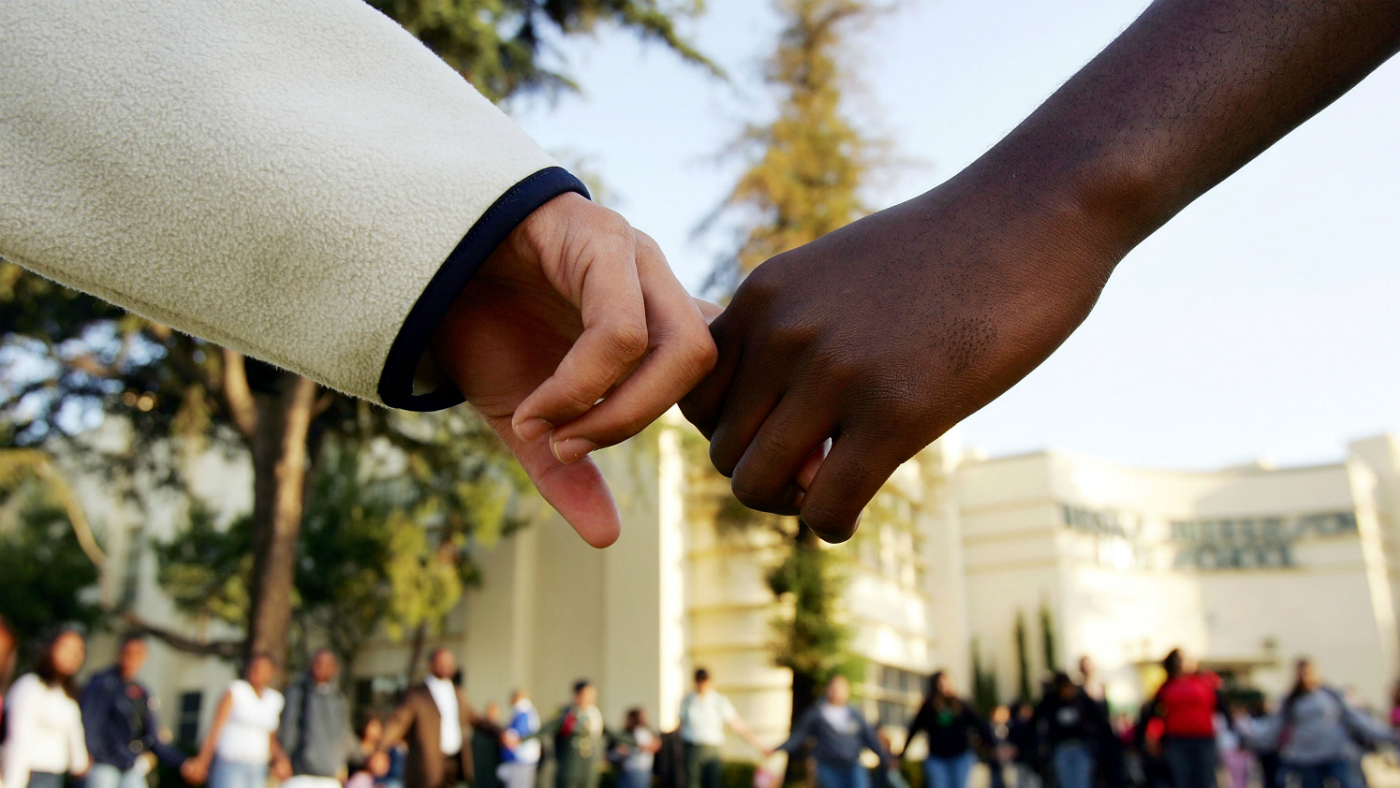What is identity politics?
Identity politics has played an important role in advancing civil rights, but some say the term itself is problematic

A free daily email with the biggest news stories of the day – and the best features from TheWeek.com
You are now subscribed
Your newsletter sign-up was successful
Identity politics refers to the tendency for people of a particular background to form political alliances, while moving away from traditional broad-coalition party politics.
It is considered to have played a hugely important role in advancing civil rights for many minority groups, but some say that forming these types of associations risks blinkering people’s views on other groups, while others argue the term itself is problematic.
What is identity politics?
The Week
Escape your echo chamber. Get the facts behind the news, plus analysis from multiple perspectives.

Sign up for The Week's Free Newsletters
From our morning news briefing to a weekly Good News Newsletter, get the best of The Week delivered directly to your inbox.
From our morning news briefing to a weekly Good News Newsletter, get the best of The Week delivered directly to your inbox.
Identity politics generally refers to a subset of politics in which groups of people with particular shared racial, religious, ethnic, social or cultural identity seek to promote their own specific interests or concerns.
Rather than organising solely around belief systems, manifestos or party affiliation, the Stanford Encyclopedia of Philosophy says, identity politics “typically aim[s] to secure the political freedom of a specific constituency marginalised within its larger context”.
Philosophy Talk says that the “feminist movement, the civil rights movement, and the gay liberation movement are all examples of this kind of political organising”, while Vox adds that the focus “typically falls on women, racial minorities, immigrants, LGBTQ people, and religious minorities”.
“All the social issues you may have heard of in the past several years — same-sex marriage, police shootings of unarmed black men, trans people in bathrooms, the fluidity of gender, discussions about rape culture, campus battles about safe spaces and trigger warnings — are typically the kinds of issues people mean when they refer to identity politics,” the news site adds.
A free daily email with the biggest news stories of the day – and the best features from TheWeek.com
Why is it important?
The dramatic rise of identity politics in mainstream politics is often regarded as both a cause and effect of the rise of populism across the globe. According to The Guardian, “when groups feel threatened, they retreat into tribalism”, causing groups of people to become “more defensive, more punitive, more us-versus-them”.
“Whites and blacks, Latinos and Asians, men and women, Christians, Jews, and Muslims, straight people and gay people, liberals and conservatives – all feel their groups are being attacked, bullied, persecuted, discriminated against,” the paper adds.
Could it impact on the general election?
UK politics has not been spared the shift towards identity politics, and the upcoming December election, according to The Scotsman, looks set to be defined less by policy and more by identity.
The paper suggests that the country has shifted from making decisions based on “economic arguments such as ‘am I happy with paying more tax/do I want to pay less tax/which party will protect my job/my pension’ etc” to “one where people put the concerns they feel more relevant to their own ‘identity’, be it race, religion, sex, ethnicity, sexual orientation, gender choice, even age group, first and foremost”.
But The Independent warns that the sheer vagueness of the term means that those who use the phrase are “conceding the argument to those who think that identity politics is a major, if not the greatest, problem with politics today, because those voices so often proclaim that identity politics is taking over, and destroying the space for ‘normal’ or ‘good’ politics”.
Why is it controversial?
If you accept the term, identity politics could be said to impact all aspects of society and has effectively dictated the course of politics for the last few years.
As a result The Independent says that describing movements as identity politics is effectively a “trap” as it is “easy to declare all politics identity politics, because everything relates to our identity”.